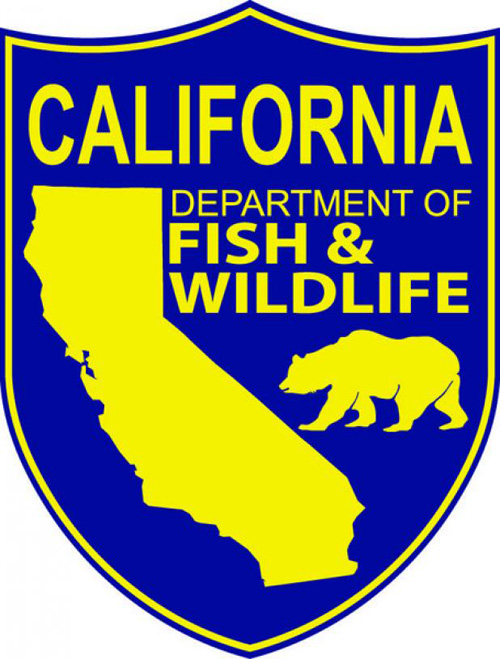
Your Source for Outdoor Adventure
Northern California and Southern Oregon
California Outdoors Q & A: Pig hunting with GPS-collared dogs?
by Carrie Wilson
10-7-2010
Website

Answer: No. Everyone who fishes or attempts to take fish must have a valid sport fishing license. The only exceptions are when fishing on one of the two designated free fishing days each year, fishing in the ocean from a public pier, fishing in a pond or reservoir wholly enclosed on private property that is not hydrologically connected to any other watershed, or fishing in waters covered under an aquaculturalist permit.
Question: How many fishing hooks can I use when fishing for sanddabs? (Michael A.)
Answer: You may fish with as many as you like but keep in mind when you have rockfish or lingcod aboard or in possession, you may only fish with one line and with not more than two hooks (CCR Title 14 Section 28.65 (c)). Also, while fishing in San Francisco and San Pablo bays from a boat or from shore, you can only use one fishing line with no more than three separate hooks or lures.
Question: I have some questions about pig hunting and I want to make sure I'm on the right track here. First of all, can I use Global Positioning System (GPS) tracking collars on my dogs? And what is the law regarding owning a wild boar? Can you buy them when sold as livestock from somebody who is breeding Russian or European pigs? If you have a hog for more than six days, is it considered domestic? If you buy a hog that was bred (not wild), what paperwork are you supposed to have? (Vince S.)
Answer: To answer your first question, when taking mammals, the use of GPS on dog-collars is prohibited (California Code of Regulations Title 14, Section 265(d)). As far as owning wild boars, the law allows only for domestic swine, Sus scrofa domestica, to be possessed alive, but they are not regulated by California Department of Fish and Game (DFG) laws. All other species of swine are restricted and may not be possessed alive without a permit. According to DFG retired Capt. Phil Nelms, permits are only available for public display such as by zoos or in movie and television production, and for scientific research by colleges and universities. Swine held under these permits may not be killed for gain, amusement or sport.
Question: I have an either-sex deer tag for this year. If a deer is not a fawn with spots and clearly not a baby buck, is it fair game? (John P.)
Answer: An either-sex tag can be used for a legal buck deer or a legal antlerless deer. Antlerless deer are defined as female deer, fawns of either sex other than spotted fawns, and male deer with an unbranched antler on one or both sides that is not more than three inches in length (CCR Title 14, Section 351). Spike bucks with spikes three inches or longer and spotted fawns are the only deer prohibited under an either-sex tag.
Question: I have a question about my oldest boy who is now 15 and has a junior license (lifetime) again this year due to the fact that he was 15 when the license was issued. He will turn 16 in September. Will he be able to apply for the junior bird hunts in November and December? Based on my interpretation of the regulations it appears that the answer is yes, but I want to be 100 percent sure before he applies. (Jack S.)
Answer: As long as the license was issued prior to his 16th birthday, his license will be valid for this year. As far as junior hunts though, some are only available to those under 16 years of age at the time of the hunt, regardless of whether a junior license was purchased prior to the hunter's 16th birthday. Keep in mind that once he turns 16, he will need to purchase the federal waterfowl stamp (if hunting waterfowl) but will not need to buy state stamps until the following year.
Carrie Wilson is a marine environmental scientist with the California Department of Fish and Wildlife. While she cannot personally answer everyone’s questions, she will select a few to answer each week in this column. Please contact her at CalOutdoors@wildlife.ca.gov.
MyOutdoorBuddy.com © 2025. All Rights Reserved.
Website Hosting and Design provided by TECK.net
Website Hosting and Design provided by TECK.net